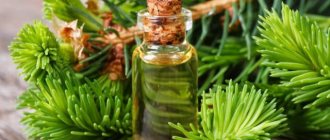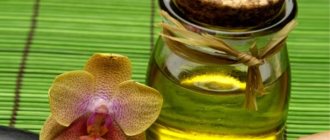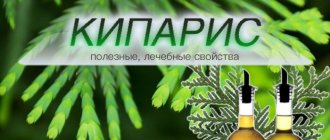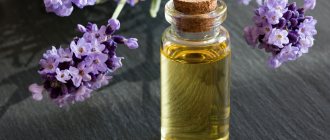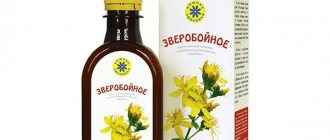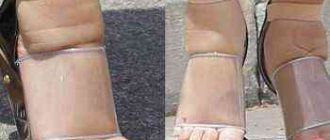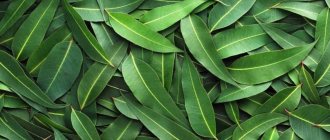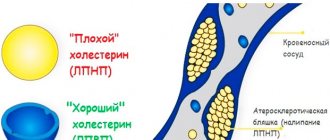Anise has long been used as a spice and medicine. Anise essential oil, which has a subtle, pleasant aroma, is used in many industries. It is made from the seeds of the plant.
The oil contains many useful substances, so it is widely used in the treatment of diseases of the digestive, nervous and reproductive systems.
How is anise oil obtained?
Anise is a plant of the Umbellaceae family, the stem of which grows up to sixty centimeters in height. The flowers are white, small in size, collected in inflorescences - umbrellas.
Anise oil is obtained from the seeds of the plant. They are collected at the end of summer, when the flowers turn brown. At this time, the seeds contain up to 6% essential oils. The seeds are crushed and steamed, which helps release the essence.
They are then passed through special equipment where the essence is cooled and converted into anise essential oil. Then it is separated from the water. Fifty grams of seeds yield one gram of oil.
Benefits for beauty and health of lips
The beneficial substances of the oil take very good care of the delicate skin of the lips. You can make a pleasant and healthy anise scrub.
- You will need anise essential oil, 10 g of almonds and a couple of drops of lemon extract. Nuts must be crushed in a coffee grinder and mixed thoroughly with liquids.
- Apply the mask in a thick layer to the skin of your lips, leave for 20 minutes and rinse with cool water. Don't forget about the nourishing balm
. Now your lips are ready to give kisses and smiles.
Unfortunately, anise oil is not universal, but its benefits are undeniable. The ether moisturizes, nourishes, tightens, and the aroma creates an atmosphere of the East and luxury
. In conclusion, we invite you to watch a video about the wonderful properties of aromatic anise oil.
Anise oil is made from the seeds of the plant of the same name. It has a very delicate and sweet aroma and a transparent yellowish base. You can store this oil for up to five years if the container with it is hermetically sealed.
Anise oil is very often counterfeited, as it is very easy to do. When purchasing anise oil, be sure to read the label and its composition to ensure that the product is genuine. We will now tell you in more detail about its composition and beneficial properties.
Composition of anise oil
Anise essential oil has a rich composition. It includes:
- 85% atenol;
- 10% methyl chavicol;
- terpenoids;
- dipentene;
- camphene;
- safrole;
- anisketone;
- fats;
- acetaldehyde;
- organic acids;
- proteins and pinene;
- phellandrene and linalool.
Such a rich composition of the product determines many areas of its use.
Before using anise oil, it is recommended to hold the bottle of the product in your hands for some time, since it warms up from body heat and hardens at low temperatures.
What does anise oil consist of and what medicinal properties does it have?
Anise is an annual herbal plant that has a pleasant spicy aroma, which is why it is often added to medicines and preserves. The plant belongs to the umbrella family; the flower has six or seven petals that look like an umbrella. The oil is made by steam distillation from the spice fruits after they have turned brown or from the entire plant while it is still green.
The oil obtained from anise is essential, fat-soluble, and poorly soluble in water. In its pure form, it is prohibited to be applied to the skin or used internally.
The composition of a pure natural product does not differ in the variety of ingredients:
- 90–95% consists of anethole (trans-anethole). Thanks to this aromatic ester, the oil owes its aroma and sweetish taste,
- 4% is methyl chavicol,
- 1% are monoterpenes and sesquiterpenes, which are natural hydrocarbons.
You can also find anise oil on sale with a more extensive list of components that are the result of a secondary chemical process.
Medicinal properties of anise oil:
- Anethole, which is part of the oil, gives antiseptic and bactericidal effects.
- Promotes better removal of sputum, relieves cough during bronchitis or colds.
- It is able to stimulate the digestive process and peristalsis, therefore it is used for constipation.
- Thanks to methyl chavicol, the product relieves pain, cramps and spasms. Helps eliminate pain during menstruation and migraines. Our ancestors relieved the pain of childbirth with the help of anise oil.
- The diuretic effect of the product makes it useful for ailments of the genitourinary system and for the treatment of kidneys.
- Restores women's and men's health, and the ancient Romans used the oil as an aphrodisiac.
- Activates the production of breast milk, improves lactation in nursing women.
- Reduces gas formation in the intestines, helps get rid of discomfort due to flatulence.
- The fungicidal effect gives the oil the ability to destroy fungal spores, which determines its use in the complex therapy of fungal diseases.
Video: properties of anise oil
Useful properties and uses of anise oil
Anise oil has many beneficial properties due to its rich composition. It has antispasmodic, antimicrobial, bactericidal, disinfectant, antioxidant, soothing, lactogenic effects. Has a beneficial effect on mental health, eliminating symptoms of depression and nervous tension.
The oil helps increase the body's defenses. It improves the functioning of the nervous system and blood circulation, lowers body temperature, eliminates inflammation and removes phlegm. It has a beneficial effect on the reproductive system. Anise essential oil is a natural aphrodisiac.
The aroma of the oil stimulates blood flow to the genitals, increasing sexual desire. It is often included in the treatment regimen for prostatitis and PMS.
The oil of this plant stops the development of atherosclerosis, improves appetite, eliminates constipation and dysbacteriosis, removes excess fluid from the body, relieves spasms of internal organs, increases the elasticity of blood vessels and capillaries, and helps enrich organs with oxygen.
Thanks to its specific smell, anise oil repels insects. Therefore, it is often used to treat scabies and lice.
Anise is used in therapy:
- joint diseases;
- migraine;
- gastrointestinal pathologies;
- depression and neuroses;
- chronic fatigue;
- diseases of the cardiovascular, respiratory, genitourinary and reproductive systems.
Characteristics and properties
The aroma of anise can be described as sweet and warm , with a spicy base and top notes of freshness .
It contains a high content of anethole up to 90%, methyl chavicol contains 10%.
The presence of anise in the oil has been established:
- depentene;
- camphene;
- anisketone;
- acetaldehyde;
- a-pinene;
- a-phellandrene.
Anise ether is obtained from seeds by distillation, after having previously been crushed.
In order to end up with 1 kg of anise oil, you need 50 kg of seeds.
Health Benefits of Anise Oil
- It treats colds well, as it stimulates expectoration and has an antipyretic effect.
- It has a beneficial effect and heals the digestive tract. Eliminates gas formation, colic, flatulence, dispersion. Eliminates vomiting, fights nausea caused by a nervous attack.
- It has a diuretic effect and relieves inflammation of the urinary tract and kidney tissue. Anise oil is used to treat the genitourinary system.
- It affects potency and has long been considered an aphrodisiac. It can increase lactation while feeding a baby, improve the functioning of the reproductive organs, and fight impotence and frigidity. Can relieve pain during menstruation and regulate the cycle.
- Able to fight excess weight.
Aromatherapy properties
The benefits of anise are due to the following actual effects:
- It emits an aroma that awakens positive personality traits and gives emotions of inspiration and joy.
- It promotes the manifestation of spontaneity of the individual, helps create a cozy, comfortable, kind, warm atmosphere.
- You can use this aroma when anger, resentment, problems, worries, irritation haunt you and constrain your psyche.
- Due to its active antidepressant properties, anise essential oil helps maintain a positive attitude, stimulates mental activity and helps increase adaptability.
- Problems with sleep can be solved with the help of anise; it can relieve disturbing excitability and eliminate anxiety, giving a carefree detachment from troubles.
The dosage for the aroma lamp is 5 drops for every 15 square meters of the room.
The activity of anise ester is high, so in no case should you use it in large dosages.
Follow the recommended dosages to avoid negative consequences.
Applications of anise oil
Anise essential oil is used in various industries. It has long been considered a medicinal product, therefore it is used in medicine to treat many diseases. Thanks to its specific aroma, it is also used in cosmetology, cooking, and in everyday life.
ethnoscience
In the treatment of various diseases, anise is used as an auxiliary remedy. They treat colds that are accompanied by cough. To do this, inhalations are made from the oil; it helps soften the mucous membranes and helps remove phlegm. Therapeutic water vapor dilates blood vessels, normalizes blood circulation, and eliminates inflammation in the respiratory system.
Anise oil is used to treat runny noses and diseases of the gastrointestinal tract; it eliminates dysbacteriosis and has a laxative effect. Anise oil is often used as an antidepressant. It activates blood circulation in the brain, tones, improves memory and attention, and eliminates migraines.
This product is even used to treat urogenital infections, but only as part of complex therapy. It helps eliminate PMS, relieves pain during menstruation, improves erectile function
Anise oil is included in many tinctures and cough mixtures to stimulate appetite, eliminate colic and flatulence, and improve lactation. It is added to anti-insect bite remedies.
Cosmetology
Anise is also used in cosmetology, but not in its pure form. Its oil is added to cream for dry and sensitive skin. Anise oil helps moisturize the skin, gives it a healthy appearance, improves color, normalizes fat metabolism, eliminates inflammation, smoothes out fine wrinkles.
Masks are made from it; the oil helps activate the regeneration process of epidermal cells, eliminate dandruff and activate hair growth on the head. The product is added to shampoos and baths. Fatty oil is often added to soap. Since anise essential oil has a strong effect, it is recommended to use it in minimal quantities.
Anise oil is added to perfumes, as it reveals the aroma of citrus fruits, flowers, wood, and also in sunburn remedies. Many perfume companies use it in the production of their products.
Cooking
Anise oil is used in cooking as a food additive; the product is also added to bread, pastries, drinks, meat and fish dishes. Along with spices such as cumin and cloves, anise is added to gingerbread and muffin dough, sauces, alcoholic drinks, and meat dishes.
Household use
Anise essential oil has a disinfectant effect and helps freshen the air. It eliminates bad odors.
Anise oil against insects: lice, cockroaches, moths, fleas, ticks
This product repels mosquitoes, flies, midges and other insects. It works well to get rid of cockroaches, ticks and fleas. But it does not kill insects, it only repels them.
Health uses of anise essential oil
Anise essential oil is added to drops for rhinitis, in solutions for gargling and mouthwash, and used in aromatherapy. It is also used during massage, added to various compositions from which compresses, creams and other skin care products are made.
The product is taken orally in a minimal dosage as an independent remedy or as part of mixtures.
Use in everyday life and cooking
Baking with anise essence
Anise oil is often used not only for skin care or treatment of diseases, but also for preparing certain dishes. With its help you can create:
- Homemade baked goods. Anise essence is added to the dough during the preparation of biscuits, gingerbreads, cookies, muffins and pies.
- Sauces. Star anise is an integral part of sauces for pilaf, meat and barbecue.
- Meat dishes. A few drops can be added to marinade for beef, lamb or poultry.
- Alcohol. Using anise oil, you can flavor vodka, liqueurs and tinctures.
In everyday life, the use of oil helps to freshen the air in the room and eliminate unpleasant odors in the toilet or bathroom. It also helps repel fleas and mosquitoes.
Dosages: how to use anise oil?
Anise oil should be used in minimal quantities. As an air freshener, take four drops of oil per fifteen square meters of room. Add no more than eight drops of oil to medicinal baths and take them for no more than twenty minutes.
For inhalation, only two drops of essential oil are required, the procedures are carried out for no more than five minutes, for massage you will need six drops of anise per thirty grams of base.
Five drops of it are added to shampoos, tonics, masks, lotions and other body and skin care products. No more than one drop of the product can be taken internally, but not in its pure form and only after consultation with a doctor.
How to choose quality essential oil
To check the quality, you will need a sheet of paper.
The drop should be placed on the sheet and wait a few minutes. If the quality of the oil is high, then there will be no trace left on the sheet of paper where there was a drop of oil, and if the quality is not very good, then a greasy trace of the drop will remain.
It is advisable to purchase essential oil in specialized aromatherapy stores and from trusted manufacturers, and not in pharmacies or supermarkets. Using a low-quality product will not only not contribute to achieving the desired goals, but can also greatly harm your health due to the harmful components it contains.
Contraindications
Anise oil has a strong effect, so it must be used carefully and in minimal dosages. The product should not be taken in the following cases:
- high sensitivity to the components of the product;
- children under three years of age;
- period of bearing a child;
- people with arrhythmia;
- tendency to develop allergies;
- circulatory failure.
In case of an overdose of the drug, headache, nausea, loss of consciousness develops
Medicinal use
The medical use of anise oil is based primarily on its expectorant and antiseptic effects, and its ability to stimulate intestinal contractility to remove feces.
Recipes for medicinal use:
- The expectorant property of anise ester makes it effective in fighting coughs and helps remove phlegm. To do this, inhalations are carried out in the morning and evening over boiling water; you must first add a drop of anise, lemon and eucalyptus esters to it. To increase the thermal effect, you can cover your head with a large towel. Breathe this way for ten to fifteen minutes.
- The product helps reduce body temperature during colds.
- The antispasmodic effect of anise oil helps relieve pain. To get rid of muscle spasms and allow blood flow to them, you need to apply a couple of drops of a mixture of anise and jojoba esters (in a 1:1 ratio) to your finger, and then rub into the affected area. This method helps with rheumatic, premenstrual and other types of spastic pain.
- Internal use of the product relieves bloating and excessive gas formation in the stomach. After eating, you need to eat a lump of sugar or half a teaspoon of honey with two drops of anise oil, wash it down with hot milk or tea. In the same way, you can treat sand, kidney stones, improve lactation, increase appetite, and stimulate the digestive process.
- A cool gauze compress will help prevent swelling of the limbs. To prepare it, add two drops of anise oil to one teaspoon of vegetable or olive oil and apply the mixture for twenty minutes in the calf area.
- Relaxing water treatments normalize sleep, improve digestion, and the sweetish aroma of anise calms the nervous system and helps distract from unpleasant thoughts. For two st. l. cream, you need to take three to five drops of esters of anise, mint and fennel, stir and pour into the bath.
- A body massage from the mixture will help in the treatment of sexual dysfunction: 1 tbsp. l. peach, two drops each of anise, sandalwood and patchouli oils. Can be alternated with another mixture of anise, ylang-ylang and sage.
Compatibility of anise oil
Anise essential oil can be used in combination with other oils. These include oils of rosewood, cedar, cardamom, laurel, caraway and fennel, as well as coriander.
Aromatherapy: the effect of anise oil on the psycho-emotional sphere
Anise oil is a good adaptogen. It perfectly calms the nervous system, eliminates anxiety, stress and depression. The product gives vigor and strength, improves mood, improves memory and attention. When consuming the oil, chronic fatigue is eliminated and sleep is normalized.
Aromatherapy: the effect of anise oil on energy
It is generally accepted that anise oil has a positive effect on human energy. It helps to attract success and profit, drives away evil forces, and protects from the negative influence of the external environment.
This product promotes rapid adaptation to new living conditions and activities. It promotes the development of mental abilities and the acquisition of wisdom.
Combination with other essential oils
Due to the specific properties of each essential oil, it doesn’t hurt to know which combinations are beneficial to health and which can be harmful:
Anise goes well with:
- cloves;
- cardamom;
- cedar;
- laurel;
- coriander;
- tangerine;
- dill;
- cumin;
- fennel;
- amyris;
- pink tree;
- lemon;
- sage;
- verbena;
- sandalwood
It is recommended not to combine with other essential oils that are not listed, especially since there are a sufficient number of proven and beneficial variations for use.
Contraindications for use
Before you start using an essential oil, you need to conduct a sensitivity test to this product.
Test before using essential oil
Typically apply a small amount to the inner elbow area.
In what cases is it better to avoid using oil:
- allergic reactions;
- state of increased concentration;
- pregnancy;
- children under 3 years old;
- continuous use for 21 days;
- hypotension.
Anise Oil Recipes
There are many recipes using anise. All of them are simple and quite effective. But before using them, it is recommended to consult a doctor.
For face
Anise essential oil is included in many cosmetic skin care products.
It normalizes fat metabolism, eliminates fine wrinkles, relieves inflammation Skin rejuvenation:
- Add one drop of oil to one teaspoon of honey, two tablespoons of sour cream, mix.
- The mask is applied to the face, without touching the eye area, and left for ten minutes.
- Wash off with water.
Elimination of fine wrinkles:
- Grate one cucumber and take one tablespoon of gruel.
- Add one tablespoon of crushed currant berries and one teaspoon of sour cream, two drops of anise oil.
- The mask is applied to the face and décolleté area.
- Leave for fifteen minutes, rinse with water.
For body
Anise oil removes toxins and reduces pain in joints and muscles. To prepare the product, take ten drops of oil and twenty milliliters of base. Prepare a body tonic.
For hair
To make your hair shiny and silky, add five drops of anise oil to fifteen milliliters of shampoo and wash your hair with it.
Hair growth mask:
- Three drops of essential anise oil are added to twenty milligrams of olive oil.
- The mixture is rubbed into the scalp and left for fifteen minutes.
- Wash off with water.
Against cough
Anise oil is used in inhalations.
Vapors promote irritation of the bronchi and the removal of mucus. Bronchitis and tracheitis are treated in this way. Inhalations:
- Boiling water is poured into the container.
- Add three drops of anise oil.
- Cover with a towel and inhale the vapors until they stop forming.
Using the product in a massage mixture makes it possible to eliminate swelling, normalize metabolism, and eliminate skin stretch marks. To do this, take three drops of oil per ten grams of body cream. Massage is done using this mixture.
X
Use of oil in cosmetology
This medicine has found wide use in cosmetology. It increases the elasticity of aging, dry skin, normalizes the water-fat balance of the epidermis, and significantly improves lipid metabolism. Anise oil stimulates skin cells to produce much more collagen. In addition, it is successfully used in the treatment of certain skin diseases and helps get rid of scabies at its first manifestations.
The product has proven itself in hair care. This natural component is added to shampoos, conditioners, and nourishing masks. General strengthening and relaxing massage mixtures are made with this oil and added to aromatic baths. When enriching any cosmetic product, you must strictly adhere to the dosage: no more than three drops per 10 ml of the base composition.
The massage mixture is prepared according to the same recipe, but body lotion or cream is used as a base. If you like to take aroma baths, don't get carried away: just seven drops of this natural remedy need to be added to a full bath of water.
Essential oil more actively reveals its beneficial properties in a sauna or steam bath, which is explained by more intense penetration of the product’s components through enlarged skin pores.
